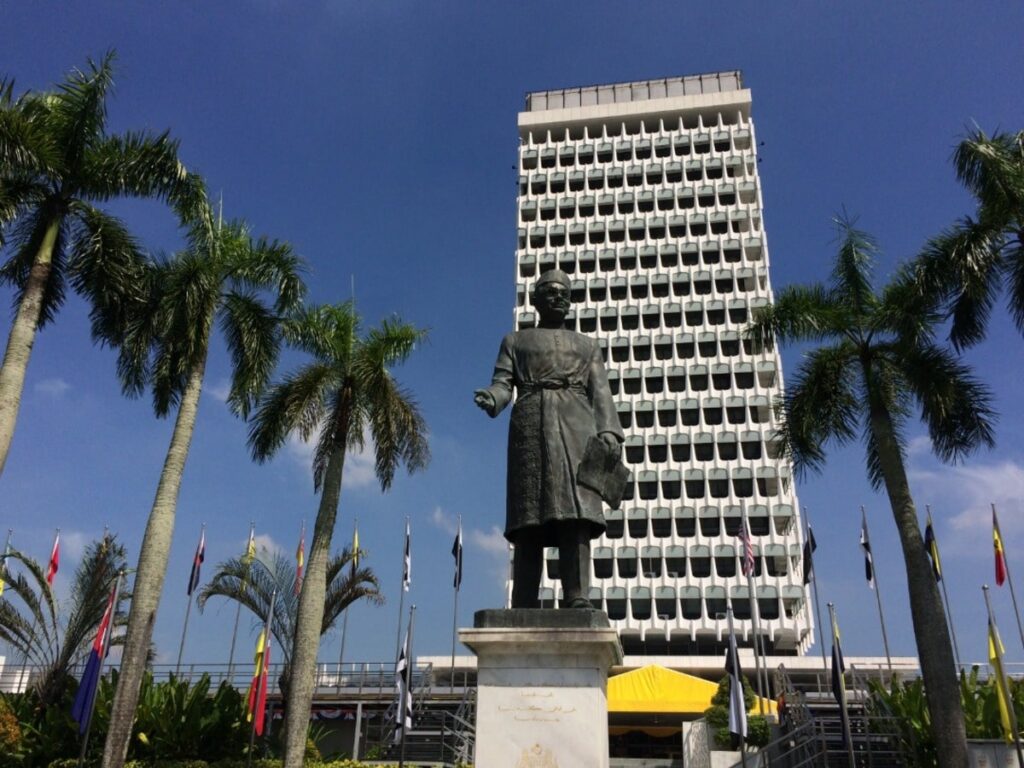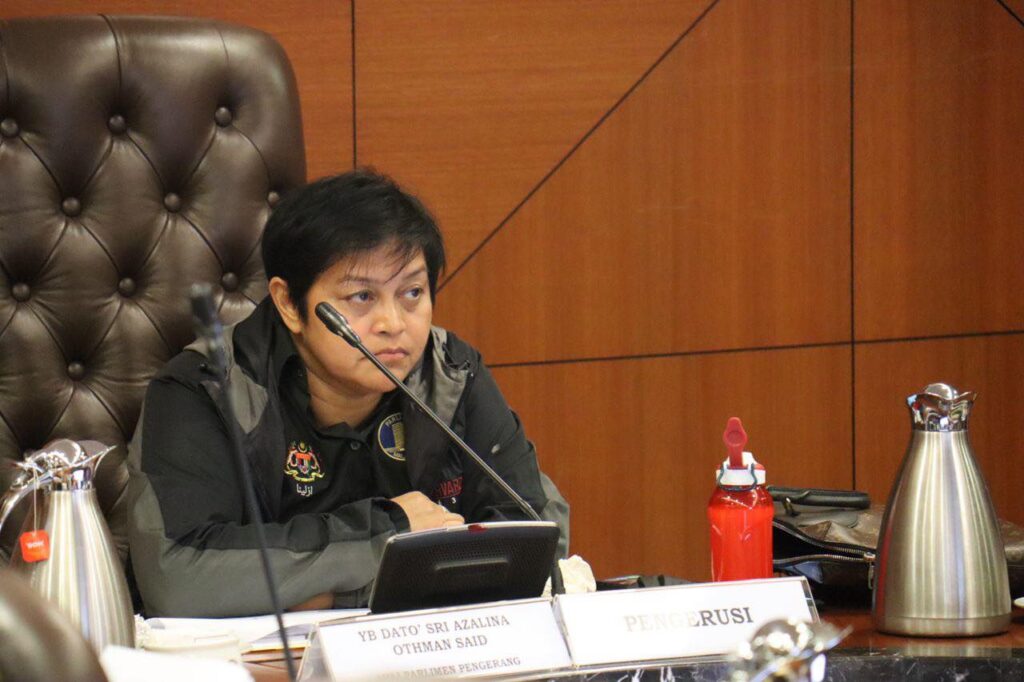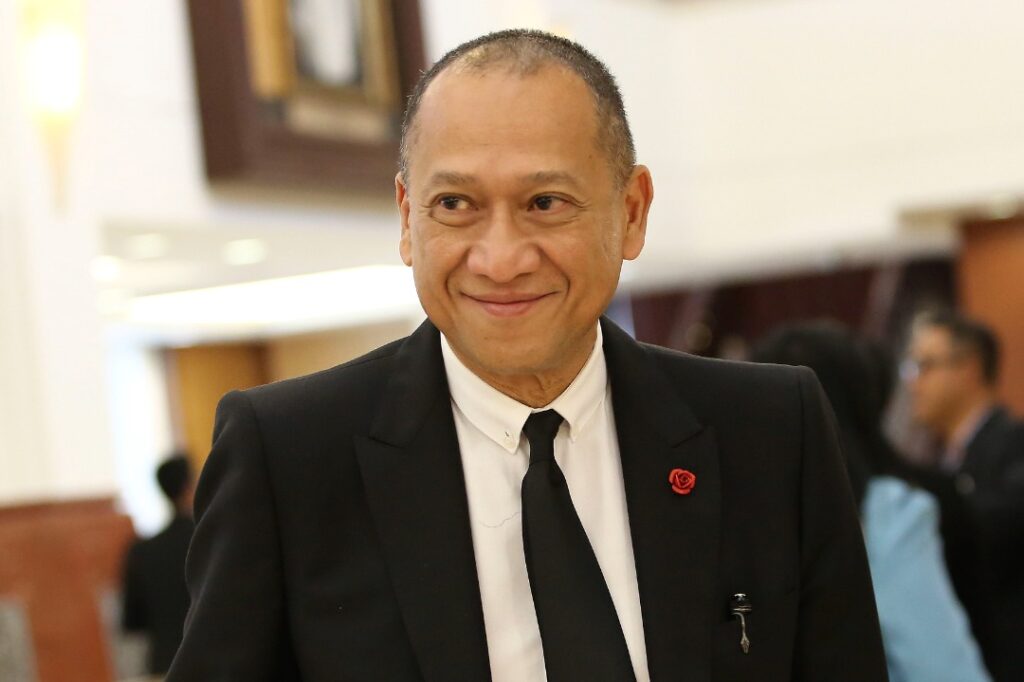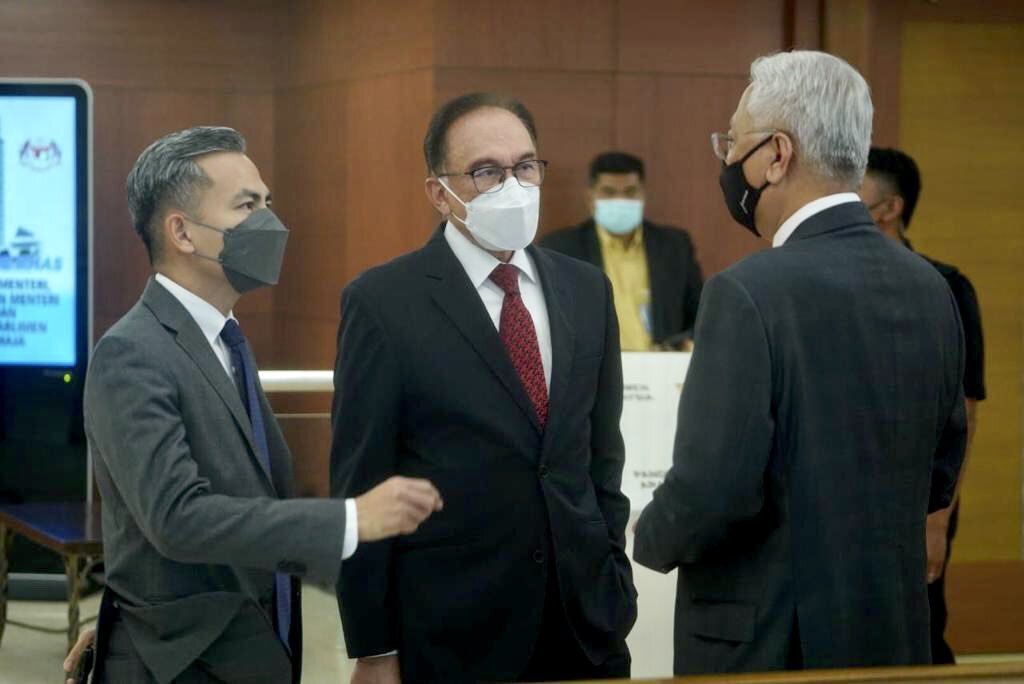KUALA LUMPUR, August 1 – Although Khairy Jamaluddin made a few concessions to amend the controversial tobacco control bill, Opposition Leader Anwar Ibrahim and two parliamentary committees today urged the health minister to postpone a Dewan Rakyat vote to the next meeting.
After meeting the parliamentary special select committee (PSC) on women and children’s affairs and social development, chaired by Pengerang MP Azalina Othman Said, and the PSC on health, science and innovation, chaired by Bandar Kuching MP Dr Kelvin Yii, to discuss the Control of Tobacco Product and Smoking Bill 2022 earlier today, Khairy told the Dewan Rakyat that he has agreed to amend particularly contentious clauses in the bill.
First, Khairy said he would drop Section 17(c) of the tobacco control bill that prohibits the personal possession of cigarettes, tobacco or vape products by anyone born from January 1, 2007; however, he did not drop Section 17(a) and (b) that prohibit smoking or vaping and usage for the next generation.
Neither did he drop Section 13(3) that prohibits the purchase of tobacco or vape products by those born from January 1, 2007.
Offences committed by individual users from the next generation, or so-called “generational end game” (GEG) – who would be barred from smoking or vaping or purchasing tobacco or vape products for their entire life – are currently punishable with a maximum RM5,000 fine upon conviction.
Khairy agreed to reduce the quantum fine for these GEG offences to RM500 and to include community service as an alternative penalty upon conviction.
The health minister retained prohibitions against individual users, except personal possession, even though Section 13(1) already prohibits the sale of tobacco and vape products and provision of smoking services to the next generation, punishable with up to two years’ jail, or a fine of between RM20,000 and RM100,000, or both for companies for their first offence.
During the second reading in the House, Khairy also said a new clause, Section 32(5), would be inserted into the bill to prohibit a body search of minors below age 18 in powers of authorised officers for search and seizure of “any premises” that does not exclude one’s private residence.
However, Khairy did not announce amending or dropping other enforcement powers under Part 9 of the bill that apply to offences by both individual users and businesses, such as search and seizure without a warrant, forcible entry into one’s premises, accessing personal data on one’s personal devices like mobile phone or computer, stop and search of one’s vehicle, and opening one’s bag to check for tobacco or vape products.
“It is hoped that prohibitions under Clause 13 and Clause 17 will realise the country’s ambition of reducing smoking prevalence to less than 5 per cent by 2040,” Khairy told the Dewan Rakyat in announcing the concessions, three days before the end of the current Dewan Rakyat meeting this Thursday.
Anwar Meets PM, Sends Speaker Motion On Forming Special Committee For Tobacco Bill

Opposition Leader Anwar Ibrahim, who is also PKR president, met Prime Minister Ismail Sabri Yaakob earlier today to discuss the Control of Tobacco Product and Smoking Bill.
After today’s parliamentary sitting, Anwar posted on social media copies of his letters to the PM and to Dewan Rakyat Speaker Azhar Azizan Harun to refer the tobacco control bill to a special parliamentary committee before voting on the proposed Act.
Should Ismail Sabri approve the opposition leader’s request and should the majority of MPs support Anwar’s parliamentary motion if the Speaker accepts the tabling of the motion, then the Control of Tobacco Product and Smoking Bill will be deferred to the next Dewan Rakyat meeting in October, or possibly even next year.
“After a series of discussions with Members of Parliament from the Opposition bloc, I find that Opposition Members of Parliament support this bill in principle,” Anwar said in his letter to the prime minister.
“However, many MPs from the Opposition bloc have also expressed concerns related to rights protected by the Federal Constitution, as well as issues related to the future enforcement of the Act.”
Hence, Anwar said that a special parliamentary committee should be formed to examine the tobacco control bill in terms of constitutional, enforcement, and other issues related to the implementation of tobacco products and smoking control.
The special parliamentary committee should also be tasked to prepare a report with suggestions for the Control of Tobacco Product and Smoking Bill within one month. This period can be extended if necessary, Anwar said.
Anwar suggested that the special parliamentary committee be led by the health minister, with a certain number of MPs representing each party.
Establishing a special parliamentary committee for a specific bill is not new. After a Dewan Rakyat special select committee was formed to work on legislation prohibiting defections by federal elected representatives, the Dewan Rakyat passed an amendment to the Federal Constitution last month to discourage party hopping with a two-thirds majority in a bloc vote.
Children’s PSC Wants Review By Child Groups, Health PSC Moots Bill Deferral To October

The women and children’s affairs and social development PSC said in a statement after meeting Khairy that although it welcomed his agreement to amend certain clauses in the tobacco bill, the committee’s suggestions should also go through an engagement process with other stakeholders like Suhakam’s children’s commissioner, Unicef Malaysia, non-governmental organisations (NGOs), and children’s representatives.
“If a special parliamentary committee needs to be formed to further review the bill and to ensure that the bill achieves its stated objectives, the PSC is ready to assist the Minister and MOH (Ministry of Health),” said the PSC chaired by Azalina.
Health PSC chair Dr Yii said during his debate on the tobacco control bill that legislators still had concerns about enforcement, despite Khairy’s concessions.
“I suggest that in the spirit of bipartisanship to find a compromise, if needed, I offer our services to a joint special select committee to review this entire bill, such as on criminalisation – let’s not leave any loopholes – as well as a regulatory impact assessment if needed,” Dr Yii told the House.
“If this is required to take until October, I give my commitment that it will be the first agenda in the October meeting.”
After the tobacco control bill was tabled for first reading less than a week ago last Wednesday — with the draft legislation available to both MPs and the public for the first time despite Khairy announcing GEG plans back in January — various lawmakers, lawyers, human rights activists, and ordinary citizens have spoken out against wide enforcement powers provided for in the bill that they said are potentially open to abuse by the authorities.
In a comparison between proposed GEG laws by Malaysia and New Zealand, Bakri MP Yeo Bee Yin pointed out that New Zealand, which first announced last December its plans for a generational tobacco ban, does not propose criminalising individual users from the next generation, unlike Malaysia.
New Zealand’s bill only proposes banning the sale, supply, and delivery of tobacco products to those born from January 1, 2009 (vape is excluded); the legislation also does not contain many of the enforcement powers authorised in the Malaysian bill.
Nazri: GEG Is Discriminatory, Violates Constitutional Right To Personal Liberty

Padang Rengas MP Mohamed Nazri Abdul Aziz, who is a member of the PSC on fundamental liberty and constitutional rights, said during his debate that the proposed generational tobacco ban violated one’s constitutional right to individual liberty.
The veteran Umno lawmaker and lawyer also stressed that the GEG was not about children, but targeted adults aged 18, who would be prohibited from ever legally purchasing tobacco or vape products or from smoking or vaping in their lifetime.
If the GEG is enforced in 2025 for those born from 2007, the prohibition affects those aged 18 and younger, before expanding to 19-year-olds the subsequent year and so on as more children fall under the ban and grow older.
“The Constitution guarantees personal liberty; they have the right to choose. On the issue of smoking, it is their right whether to smoke or not,” Nazri told the House.
He pointed out that the harms of secondhand smoke could be reduced by designating smoke-free places in public areas instead of prohibiting an entire generation from smoking, including in their own private residence.
“What is most important is that we do not ban cigarettes,” Nazri said. “If we decide that each generation cannot smoke, this is discrimination.”
He cited the US Supreme Court’s recent decision to overturn Roe v Wade, a landmark 1973 legislation that had guaranteed Americans’ constitutional right to get an abortion, pointing out that the ruling was made to protect the foetus’ right to life.
“So here, we’re talking about freedom of choice. Even the human rights of a foetus are protected, but 18-year-olds who can vote can’t smoke,” Nazri said.
“I agree if there is a complete ban on cigarettes so that we ourselves can’t smoke. So why the discrimination?”
Nazri said he expects 18-year-olds to sue the government when the GEG comes into effect on the basis of breaches of their human rights.
Warisan president Mohd Shafie Apdal, who is also Semporna MP, called for the Control of Tobacco Product and Smoking Bill to be reviewed by a parliamentary committee first before a vote.
“The drafting of this Bill should not involve one or two parties that are one-sided in terms of solely health, but the powers provided for in the Bill – we must have sufficient time to review these powers,” Shafie said during his debate.
“The penalties for illegal narcotics in this country are extremely heavy – hanging – what have been our achievements like? When we draft a bill, the tendency to abuse by the authority, by the responsible people, is there.
“No country in the world has banned the use of cigarettes. New Zealand, for example, tabled its [GEG] bill on July 26 and it is set to be approved in December. It takes five months for perusal. We need time to examine this; we were only given five days to look at each sub-section of the bill.”
“Can’t we have a meeting to discuss how to improve the bill or the justice system? We can eliminate people who are patients because of addiction in this world. So let’s take some time to review this. It’s a very draconian kind of law in our country.”








